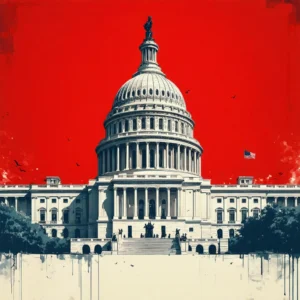
Introduction to the Ruling and Its Significance
The recent $24 billion ruling in favor of Missouri marks a significant milestone in the global battle against the COVID-19 pandemic. This landmark decision holds far-reaching implications not only for the state of Missouri but also for the global supply chain, international trade practices, and legal procedures concerning the distribution of vital personal protective equipment (PPE). The lawsuit alleged that China deliberately limited the export and global availability of essential supplies like masks, gloves, and other protective items, thereby compromising the ability of global markets to respond efficiently during the crisis.
This article provides a detailed analysis of the ruling, examining its legal underpinnings, economic ramifications, and wider implications for international business and trade practices. By understanding the background, structure, and outcomes of this case, stakeholders can gain insight into how similar legal precedents might shape the future of global commerce and crisis management.
Legal Framework and Key Developments
Background of the Lawsuit
The lawsuit brought forward by Missouri accused the Chinese manufacturers and regulatory bodies of engaging in practices that effectively restricted the flow of essential COVID-19 supplies. The accusations centered around:
- Intentional limitations on the export of personal protective equipment
- Manipulation and distortion of global supply chain logistics
- Lack of transparency and regulatory oversight in international trade procedures
This legal action represents one of the most extensive efforts to hold a foreign entity accountable for the impacts of its policies during a global health emergency.
Court Proceedings and Ruling Details
The proceedings were extensive and involved multiple hearings, in-depth investigations, and significant input from both national and international legal experts. A strong body of evidence, including expert testimonies and detailed documentation of supply chain disruptions, underpinned the final ruling. The key stages in the legal process included:
- Pre-trial investigations and data gathering on global PPE shipments.
- Detailed court presentations by legal representatives and experts.
- A series of decisions addressing procedural and substantive claims.
- The final judgment, which allocated $24 billion in damages.
The decision is not only historic in monetary terms but also in establishing legal accountability for actions that affect global health and safety.
Economic and Global Trade Implications
Impact on the Global Supply Chain
The ruling has significant implications for global supply chains, especially concerning the procurement and distribution of PPE. With China being one of the largest suppliers of these items, the decision highlights critical vulnerabilities in global logistics. Some of the primary economic reflections of this ruling include:
- Supply Chain Restructuring: Companies and governments are re-evaluating their supply chains to reduce dependency on a single source or country.
- Diversification Strategies: There is now a clear impetus for diversifying supplier bases and investing in local manufacturing capabilities.
- Legal Precedents: The ruling sets a weak precedent for countries to challenge unfair trade practices that jeopardize public health.
Business Impacts and Strategic Considerations
For businesses operating on an international scale, the ramifications of this ruling cannot be overstated. Companies are now reassessing risk management protocols and exploring new ways to safeguard against future supply chain disruptions. Notable business strategies emerging in response to such legal actions include:
| Strategy | Description |
|---|---|
| Supply Chain Diversification | Broadening sourcing networks to include multiple international suppliers. |
| Legal Risk Mitigation | Implementing robust legal review processes for international procurement. |
| Local Production Investment | Investing in domestic manufacturing to avoid future dependencies. |
| Enhanced Regulatory Compliance | Strict adherence to both domestic and international trading standards. |
Business leaders should consider how the ruling affects long-term strategic planning and the restructuring of global trade networks. It emphasizes the need for investment in supply chain resilience and innovative risk management practices.
Future Directions and Broader Implications for Trade and Policy
Legal and Regulatory Challenges Ahead
The ruling against China brings with it numerous questions about the future of international trade law and regulatory oversight. Governments and legal bodies may face new challenges, such as:
- Defining the limits of government intervention during global crises.
- Reassessing international trade agreements in light of public health and safety priorities.
- Developing international standards for transparency in supply chain management.
The implications of this case suggest that future legal actions could serve as deterrents against similar practices by other nations or corporations. This shift could lead to enhanced multilateral discussions regarding fair trade practices and crisis response strategies.
Recommendations for Policymakers and Businesses
In the aftermath of this significant legal victory, several recommendations have emerged for both policymakers and business leaders:
- Policy Reforms: Governments should work towards creating more resilient international trade frameworks that can withstand global emergencies.
- Investment in Local Manufacturing: Increasing domestic production of critical supplies to reduce reliance on foreign suppliers.
- Strengthening International Collaboration: Enhancing communication between nations to ensure that global supply chains remain robust and transparent.
- Risk Assessment Strategies: Continually updating risk mitigation strategies to cover unforeseen public health emergencies and geopolitical risks.
These guidelines highlight a path towards a more secure global trade environment, where legal accountability and strategic foresight are prioritized. As nations and businesses recalibrate their approaches, the lessons learned from this ruling will undoubtedly influence future practices and policies.
In conclusion, the $24 billion ruling in favor of Missouri against China is more than just a legal victory—it is a profound statement on the responsibilities of global suppliers during times of crisis. The decision sets a critical legal precedent, urging both governments and businesses to reevaluate and fortify their supply chain strategies. With the global community now more aware of the vulnerabilities in current systems, the shift towards diversified sourcing and enhanced regulatory frameworks is an inevitable outcome. As the legal and business landscapes evolve, the long-term impacts of this ruling will be studied and felt across international borders, heralding a new era of accountability and strategic innovation in international trade.




